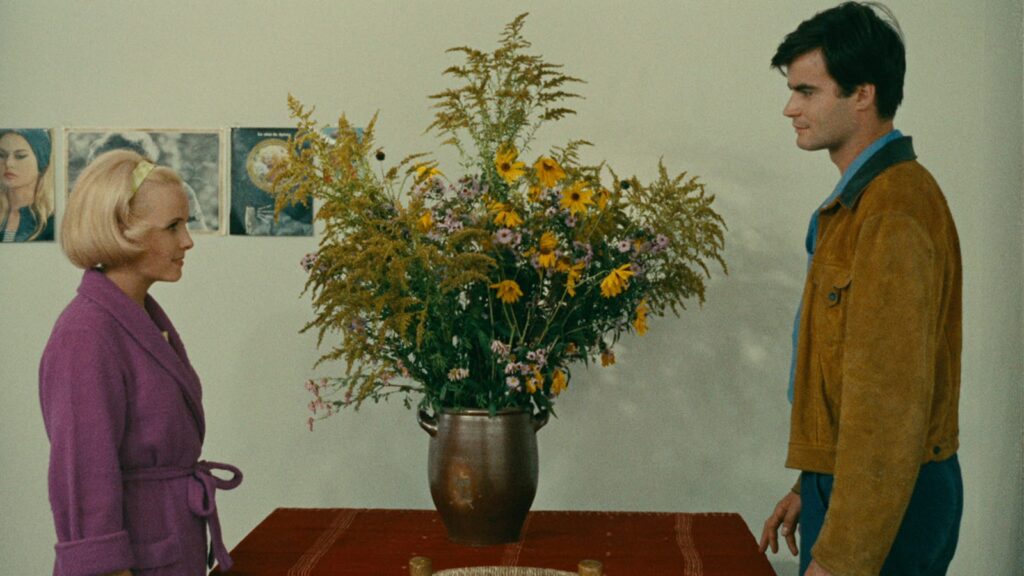Avatar: The Way of Water eclipses its predecessor in its breathtaking splendor, albeit with a similarly lackluster narrative
Written by Ian Thomas Malone, Posted in Blog, Movie Reviews, Pop Culture
Somewhere along the way in the years since 2009 came along a theory that no one cared about Avatar, a thesis that any individual could prove for themselves through their own apathy. Putting aside the massively expensive Pandora-themed addition to Disney’s Animal Kingdom Theme Park, the idea of staying power for a film that sat atop the all-time box office leaderboard never made a ton of sense. Is Titanic similarly irrelevant because fewer people dress up as Jack and Rose at Halloween than the minions from Despicable Me?
Avatar’s perceived lack of cultural capital can be explained in a few ways. The film failed to immediately establish a connected universe at precisely the same moment that big franchises began to entirely consume the box office, an association that feels fairer to make given that James Cameron already pulled off that feat decades earlier with The Terminator. The 3-D technology that the film dazzled its audiences with failed to maintain a firm stronghold in theatres. Cameron’s technical wizardry could also only go so far as to cover up Avatar’s generic plot that played like a hybrid of FernGully: The Last Rainforest and Dances with Wolves.
What people may have underestimated with regard to the delay between Avatar: The Way of Water and its predecessor is the way that the box office landscape would move away from mandating the kind of technical prowess that made Avatar such a hit in the first place. CGI has undoubtedly become cheaper to produce, but that quality has not always translated onto the final product, with countless superhero narratives settling for bland, gray color palettes projected onto green screens in soundstages that are so tiny the actors can barely even walk around. Awe and wonder was always Avatar’s greatest asset. Modern blockbusters rarely aim for that high of a bar.
The Way of Water does not have a particularly interesting story. Jake Sully (Sam Worthington) and Neytiri (Zoe Saldaña) have their happy life among the Omaticaya disrupted when the RDA returns to Pandora ten years later. Colonel Miles Quaritch (Stephen Lang) has had his conscience cloned into an avatar, along with various other commandos who were in the first film. Jake self-exiles his family to the water-based Metkayina clan when Quaritch captures the human Spider (Jake Champion), his sort-of-son who was adopted by Jake and Neytiri after the events of Avatar. The forest-based Na’vi struggles to adapt to their new ocean surroundings, a sense of belonging remaining elusive until they can truly learn the ways of water.
Cameron often seems conflicted with the idea that his fun on Pandora might need to function as something resembling a narrative you would find in a movie, a notion that might be a problem if not for the film’s breathtaking beauty. The cinematography continuously feels like footage that would be happier in a Planet Earth-style documentary, where David Attenborough’s voice could quickly remove the need for any pesky characters and those things called storylines. Pandora is such an immersive experience itself that you
The Way of Water largely operates as an ensemble piece, with Saldaña and, to a much lesser extent, Worthington ceding most of the spotlight to the next generation. Their four children, Neteyam (Jamie Flatters), Lo’ak (Britain Dalton), Kiri (Sigourney Weaver, playing a much different role than Dr. Grace Augstine in the original film), and Tuk (Trinity Jo-Li Bliss) form the emotional core of the narrative in a quite satisfactory manner, even if few in the audience will remember any of their names. Cameron manages to carve out complete storylines for practically every character, though Saldaña feels like an odd afterthought. The Metkayina play second fiddle to Cameron’s preoccupation with worldbuilding.
The gargantuan 192-minute runtime largely flies by, Cameron rarely losing his pulse on the pacing until halfway through the third act. There is some unnecessary exposition here and there, the price of admission to see the work of a vision-obsessed man incapable of editing himself. The notorious control freak Cameron can’t be told what to do, but you almost can’t really blame him when he constantly delivers some of the best visuals ever to play in a movie theatre. Cameron’s intense devotion to Pandora seamlessly translates onto the screen, making it easy to forgive the superfluous nature of his storytelling. This man never stops trying to prove he’s the greatest technical filmmaker currently making movies, often making a quite compelling case.
The climax of The Way of Water often feels like a composite of Titanic, The Abyss, and The Terminator, carrying on a bit too long to merely coast on its gravitas. There is a natural sense of audience fatigue after three hours of continuously jaw-dropping visuals, only for a finale to drag its feet toward a predictable conclusion, the only element of the film that’s not a major improvement on its predecessor. Cameron does succeed in making his film truly embody the meaning of the word epic, a movie to be survived on top of being enjoyed.
Skeptics who deem Avatar irrelevant will find plenty to scoff at in The Way of Water. The thirteen-year wait produced one of the most beautiful movies of all time, a feat of tremendous ingenuity, especially regarding underwater motion capture technology. There is a genuine thrill to watching such spectacular imagery on the screen, dazzling cinematography that reminds us all of this medium’s tremendous power when operating on all cylinders. The underwhelming narrative can’t detract too much from the joy of watching Cameron play with his craft. If only more blockbusters could aim for the stars in such a determined fashion.












